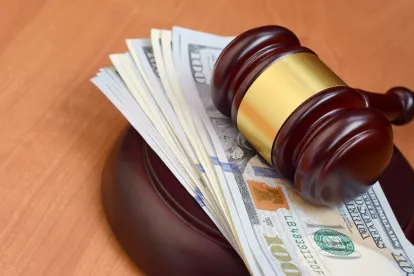The Federal Circuit passed on Pure Hemp’s ask for attorney fees and sanctions in United Cannabis, Corp. v. Pure Hemp Collective Inc., No. 22-1363 (Fed. Cir. May 8, 2023). Agreeing with the district court, the appellate panel found Pure Hemp’s exceptionality arguments lacking (even referring to Pure Hemp’s appeal as “extremely weak”) and affirmed the district court’s denial of Pure Hemp’s motion for attorney fees.
Almost five years ago in 2018, UCANN filed suit against Pure Hemp in the U.S. District Court for the District of Colorado alleging infringement of U.S. Patent No. 9,730,911. The ʼ911 patent relates to the extraction of pharmaceutically active components and, more specifically, botanical drug substances (BDS), including cannabinoids obtained by extraction from cannabis. The case was stayed in April 2020 when UCANN filed for bankruptcy. Once the bankruptcy petition was dismissed, UCANN and Pure Hemp entered into a stipulation resulting in the dismissal of UCANN’s infringement claims against Pure Hemp. Notably, the stipulation did not address attorney fees, UCANN’s infringement claims were dismissed with prejudice, and Pure Hemp’s invalidity and inequitable conduct counterclaims were dismissed without prejudice.
Pure Hemp then moved for attorney fees because 1) UCANN’s prosecution counsel had allegedly committed inequitable conduct and 2) UCANN’s litigation counsel took conflicting positions in its representation of UCANN and another client. The district court found that Pure Hemp failed to establish that it was a prevailing party under 35 U.S.C. § 285, that the case was “exceptional,” or that UCANN’s counsel acted unreasonably and noted that dismissal occurred before the record was developed to a point that would have supported an award of attorney fees.
On appeal, the appellate panel first explained that the district court erred in finding that Pure Hemp was not a prevailing party. This is important because only a prevailing party is eligible to be awarded attorney fees under § 285 (one of the three different legal authorities employed by Pure Hemp). In determining whether a party is a prevailing party under § 285, the panel “must consider whether the district court’s decision effects or rebuffs a plaintiff’s attempt to effect a material alteration in the legal relationship between the parties.” The panel explained that here, because UCANN’s claims were dismissed with prejudice, UCANN is prevented from asserting the ʼ911 patent against Pure Hemp in the future and, thus, Pure Hemp successfully “rebuffed” UCANN’s infringement claims. That said, the panel found this error by the district court to be harmless and further found that the district court did not abuse its discretion in finding this case unexceptional because Pure Hemp failed to establish that the case was exceptional (by virtue of the inequitable conduct allegation). In this vein, the panel “reject[ed] Pure Hemp’s invitation to invade the province of the district court and make [its] own findings of fact.” In fact, Pure Hemp voluntarily dismissed the inequitable conduct counterclaim before any findings were made, and it did not seek any further evidentiary proceedings.
So what makes a case exceptional under 35 U.S.C. § 285? How might a party get (and keep) those coveted attorney fees? As explained in Octane Fitness in 2014, the case must “stand out from others with respect to the substantive strength of a party’s litigating position (considering both the governing law and the facts of the case) or the unreasonable manner in which the case was litigated.” Think frivolous, bad motivation, and objective unreasonableness (in both factual and legal components of the case). By way of example, the Federal Circuit took issue with the plaintiff’s litigation tactics in Electronic Communication Technologies, LLC v. Shopperschoice.com, LLC, characterizing them as abusive, for the sole purpose of forcing settlements, and evidence that ECT had no real intention of testing the strength of the patent or the infringement allegations, such that it vacated and remanded the denial of attorney fees by the lower court. That said, the high bar to obtain attorney fees is not one that the Federal Circuit takes lightly. For a more in-depth discussion of what the Federal Circuit looks for to affirm an award of attorney fees on never-adjudicated claims that are dismissed, please click here.




 />i
/>i

